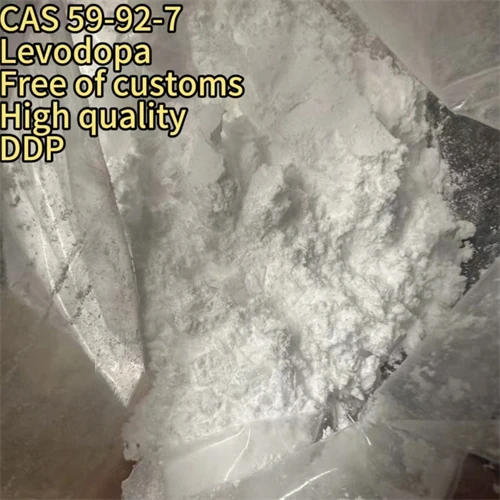Warning: Undefined array key "title" in /home/www/wwwroot/HTML/www.exportstart.com/wp-content/themes/1198/header.php on line 6
Warning: Undefined array key "file" in /home/www/wwwroot/HTML/www.exportstart.com/wp-content/themes/1198/header.php on line 7
Warning: Undefined array key "title" in /home/www/wwwroot/HTML/www.exportstart.com/wp-content/themes/1198/header.php on line 7
Warning: Undefined array key "title" in /home/www/wwwroot/HTML/www.exportstart.com/wp-content/themes/1198/header.php on line 7
- Afrikaans
- Albanian
- Amharic
- Arabic
- Armenian
- Azerbaijani
- Basque
- Belarusian
- Bengali
- Bosnian
- Bulgarian
- Catalan
- Cebuano
- China
- China (Taiwan)
- Corsican
- Croatian
- Czech
- Danish
- Dutch
- English
- Esperanto
- Estonian
- Finnish
- French
- Frisian
- Galician
- Georgian
- German
- Greek
- Gujarati
- Haitian Creole
- hausa
- hawaiian
- Hebrew
- Hindi
- Miao
- Hungarian
- Icelandic
- igbo
- Indonesian
- irish
- Italian
- Japanese
- Javanese
- Kannada
- kazakh
- Khmer
- Rwandese
- Korean
- Kurdish
- Kyrgyz
- Lao
- Latin
- Latvian
- Lithuanian
- Luxembourgish
- Macedonian
- Malgashi
- Malay
- Malayalam
- Maltese
- Maori
- Marathi
- Mongolian
- Myanmar
- Nepali
- Norwegian
- Norwegian
- Occitan
- Pashto
- Persian
- Polish
- Portuguese
- Punjabi
- Romanian
- Russian
- Samoan
- Scottish Gaelic
- Serbian
- Sesotho
- Shona
- Sindhi
- Sinhala
- Slovak
- Slovenian
- Somali
- Spanish
- Sundanese
- Swahili
- Swedish
- Tagalog
- Tajik
- Tamil
- Tatar
- Telugu
- Thai
- Turkish
- Turkmen
- Ukrainian
- Urdu
- Uighur
- Uzbek
- Vietnamese
- Welsh
- Bantu
- Yiddish
- Yoruba
- Zulu
Sep . 28, 2024 03:53 Back to list
Understanding the Role of Propylene Glycol in Engine Coolant Formulations and Performance
Understanding Propylene Glycol Engine Coolant Benefits and Applications
Engine coolant plays a vital role in the efficient operation of an engine, maintaining optimal temperatures and preventing potential damage due to heat. Among various coolant options available in the market, propylene glycol has garnered attention for its unique properties and safety benefits. This article delves into the characteristics of propylene glycol engine coolant, its advantages, and its applications in modern engines.
What is Propylene Glycol?
Propylene glycol is a synthetic organic compound that is colorless, odorless, and hygroscopic in nature. It is widely used in numerous industries, including food, pharmaceuticals, and automotive, owing to its non-toxic properties. In automotive applications, propylene glycol is commonly used as a base for engine coolants, often combined with water to create an effective heat transfer fluid.
Benefits of Propylene Glycol Engine Coolant
1. Non-Toxic and Safe One of the most significant advantages of propylene glycol engine coolant is its non-toxic nature. Unlike ethylene glycol, another common coolant, propylene glycol poses minimal health risks in case of accidental ingestion or leakage. This makes it a preferred choice for applications where wildlife or pets may be at risk, such as in agricultural or residential settings.
2. Effective Heat Transfer Propylene glycol offers excellent heat transfer capabilities, enabling efficient heat dissipation from the engine. Its ability to maintain stable viscosity across a wide range of temperatures ensures optimal cooling performance, preventing overheating in both high and low-temperature conditions.
3. Low Freezing Point One of the critical functions of engine coolant is to prevent the engine from freezing in cold weather. Propylene glycol-based coolants have a lower freezing point compared to water, making them ideal for use in colder climates. This ensures that the coolant remains in a liquid state, preventing engine damage due to ice formation.
4. Corrosion Resistance Corrosion can significantly reduce the lifespan of an engine and its components. Propylene glycol coolants typically include additives that help protect metal surfaces from corrosion, oxidation, and scaling. This prolongs the life of the engine and maintains its efficiency over time.
propylene glycol engine coolant

5. Environmentally Friendly The use of propylene glycol is more environmentally friendly than other alternatives. Its biodegradability and low toxicity reduce the potential impact on the environment in case of spills or leaks, making it a suitable choice for environmentally conscious consumers.
Applications of Propylene Glycol Engine Coolant
Propylene glycol engine coolants are used in a wide variety of applications, including
1. Automotive Engines Many modern vehicles now utilize propylene glycol coolants in their cooling systems due to the safety and performance benefits outlined above. This includes cars, trucks, and even some motorcycles.
2. Heavy-Duty Machinery In industries where heavy-duty machinery operates under extreme conditions, propylene glycol coolants provide reliable temperature regulation and protection against freezing and corrosion.
3. Agricultural Equipment Tractors and other agricultural machines often run in diverse environmental conditions. Propylene glycol coolants are favored in these applications for their non-toxicity and effective performance in varying temperatures.
4. Heat Exchangers and HVAC Systems Propylene glycol is also used in heat exchangers and HVAC systems, where efficient heat transfer is crucial. Its ability to mix well with water allows for optimal thermal management in various applications.
Conclusion
Propylene glycol engine coolant represents a safe and effective choice for engine temperature management. Its non-toxic characteristics, coupled with excellent heat transfer properties and corrosion resistance, make it a favored option across various industries. As environmental concerns continue to rise, the use of propylene glycol is likely to increase, helping to create safer and more efficient engine cooling solutions. Understanding the benefits and applications of propylene glycol coolant can lead to better choices for vehicle maintenance and enhance the overall performance and longevity of engines.
Latest news
-
Certifications for Vegetarian and Xanthan Gum Vegetarian
NewsJun.17,2025
-
Sustainability Trends Reshaping the SLES N70 Market
NewsJun.17,2025
-
Propylene Glycol Use in Vaccines: Balancing Function and Perception
NewsJun.17,2025
-
Petroleum Jelly in Skincare: Balancing Benefits and Backlash
NewsJun.17,2025
-
Energy Price Volatility and Ripple Effect on Caprolactam Markets
NewsJun.17,2025
-
Spectroscopic Techniques for Adipic Acid Molecular Weight
NewsJun.17,2025

